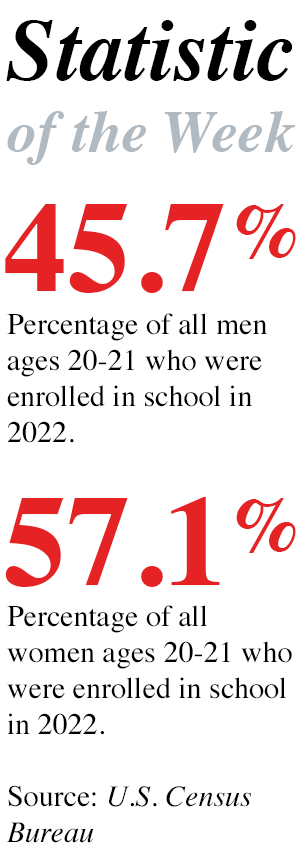Study Finds Women Are Much Less Likely to Ask Questions in Academic Seminars Than Men
Posted on Oct 17, 2018 | Comments 0
 A study from Churchill College at the University of Cambridge in England has found that women are two and half times less likely to ask a question in an academic seminar than men. The researchers believe this is a contributing factor to the gender gap in academic positions for women in Europe. While women make up almost 60 percent of all recipients of undergraduate degrees, only 47 percent of Ph.D. graduates and 21 percent of senior faculty positions in Europe are women.
A study from Churchill College at the University of Cambridge in England has found that women are two and half times less likely to ask a question in an academic seminar than men. The researchers believe this is a contributing factor to the gender gap in academic positions for women in Europe. While women make up almost 60 percent of all recipients of undergraduate degrees, only 47 percent of Ph.D. graduates and 21 percent of senior faculty positions in Europe are women.
For their study, the researchers observed 250 events at 35 academic institutions in 10 countries. In addition to their observational data, they also surveyed 600 academics from 28 different fields of study in 20 countries. The survey found that while both men and women sometimes do not ask questions when they had one, their reasoning for not asking varied. Women tended to rate factors such as not feeling clever enough, being nervous, worrying that they misunderstood the content, and being intimidated by the speaker as factors in deciding not to raise a question.
The researchers found that women were more likely to speak up when more questions were asked. For example, when 15 questions were asked in total, there was a 7.6 percent increase in the proportion of questions asked by women when compared to the median of 6 total questions asked. However, when the first question in a seminar was asked by a man, the proportion of women who asked questions fell by 6 percent, compared to when the first question was asked by a woman. Women were also more likely to ask questions when the speaker was from their department.
The researchers suggest that seminars should allow for more time to ask questions and/or keep each question and answer short to allow for more questions to be asked. Additionally, they recommend that moderators should prioritize answering a woman’s questions first and maintaining as much balance as possible concerning the gender and seniority of those individuals who ask queations. Also, they suggest providing a small break between the talk and question period to give attendees more time to formulate a question and try it out on a colleague.
Filed Under: Research/Study








